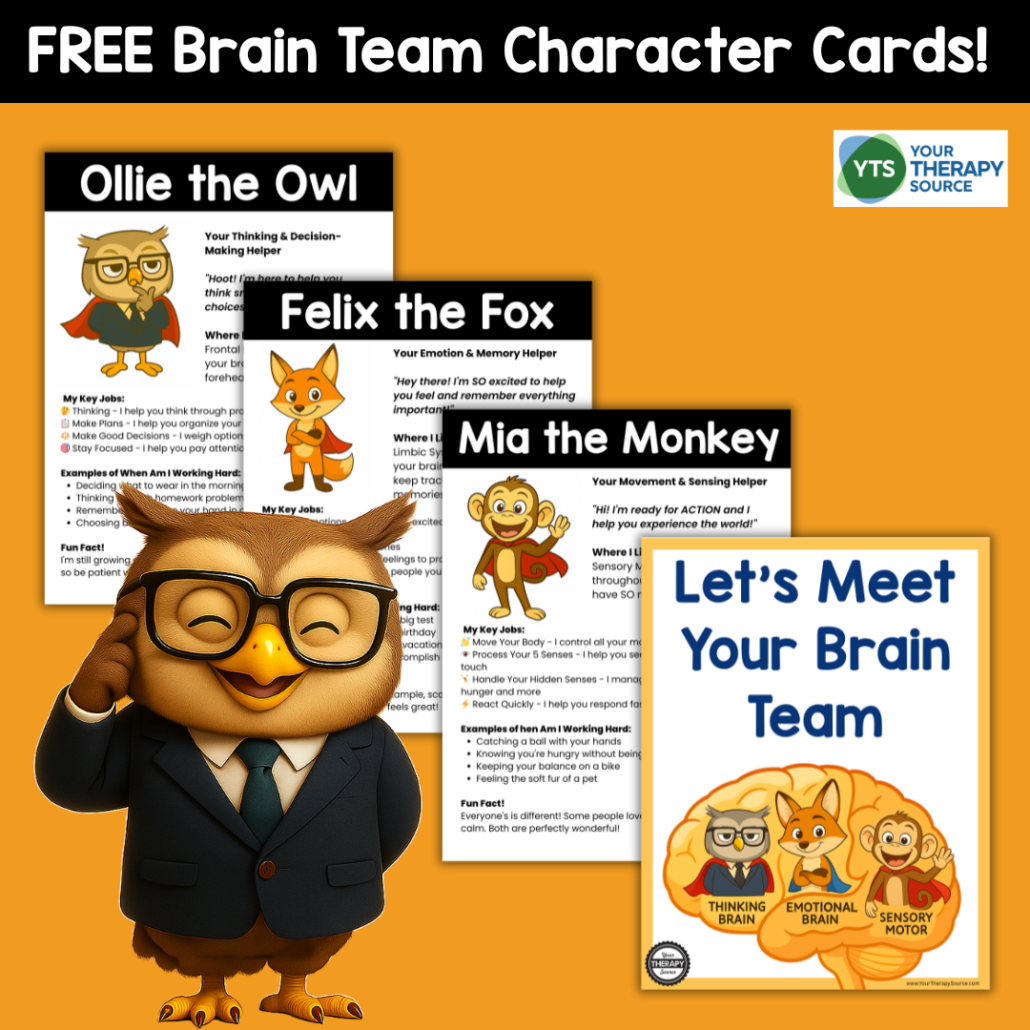Helping Children Understand Their Brain – Free Brain Team Cards
Every parent and teacher has witnessed those moments when a child struggles with big emotions, has trouble focusing, or acts impulsively. What if there was a way to help children understand their brain, why these challenges happen, and give them tools to navigate them more successfully? Understanding how the brain works isn’t just fascinating science – it’s a powerful tool that can transform how children view themselves and their behaviors. Our free “Let’s Meet Your Brain Team” character cards make this complex topic accessible and engaging for kids ages 6-12. These free printable cards are from the complete The Amazing Brain Workbook for Kids. You can download the Brain Team Cards for free at the bottom of this post.
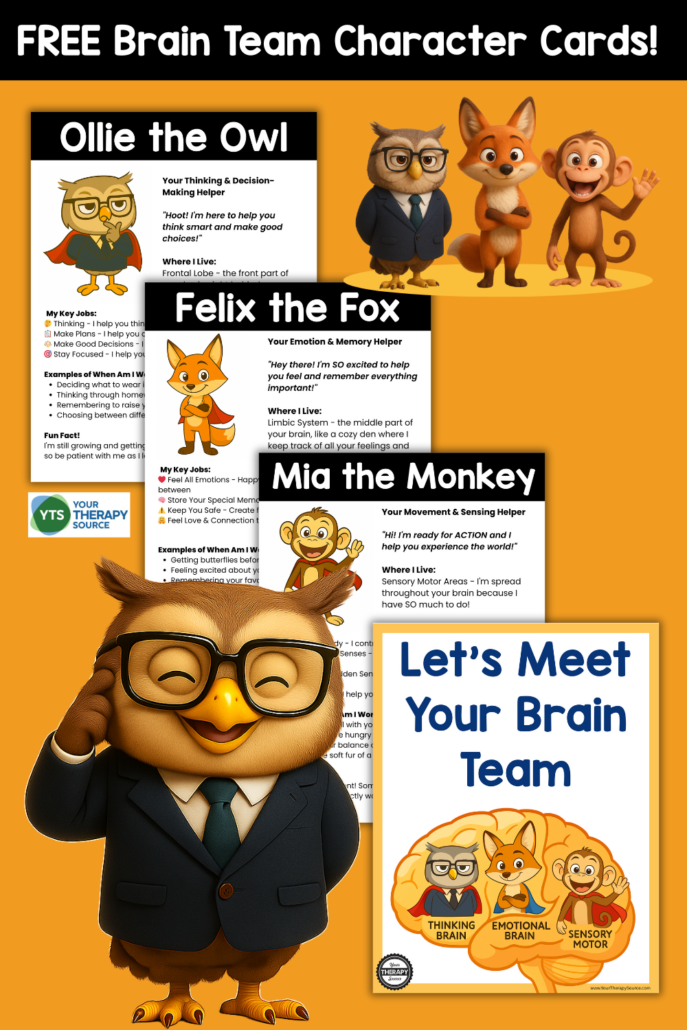
Why Teaching Brain Science to Children Matters
When children learn about their brain’s functions, something remarkable happens. They begin to understand that their struggles with attention, emotions, or impulse control aren’t character flaws – they’re simply how their developing brain works. This knowledge becomes the foundation for building essential life skills.
Children who understand basic brain functions may develop better self-awareness and are more likely to use coping strategies effectively. Instead of feeling frustrated or ashamed when they struggle, they can recognize what’s happening in their brain and take appropriate action.
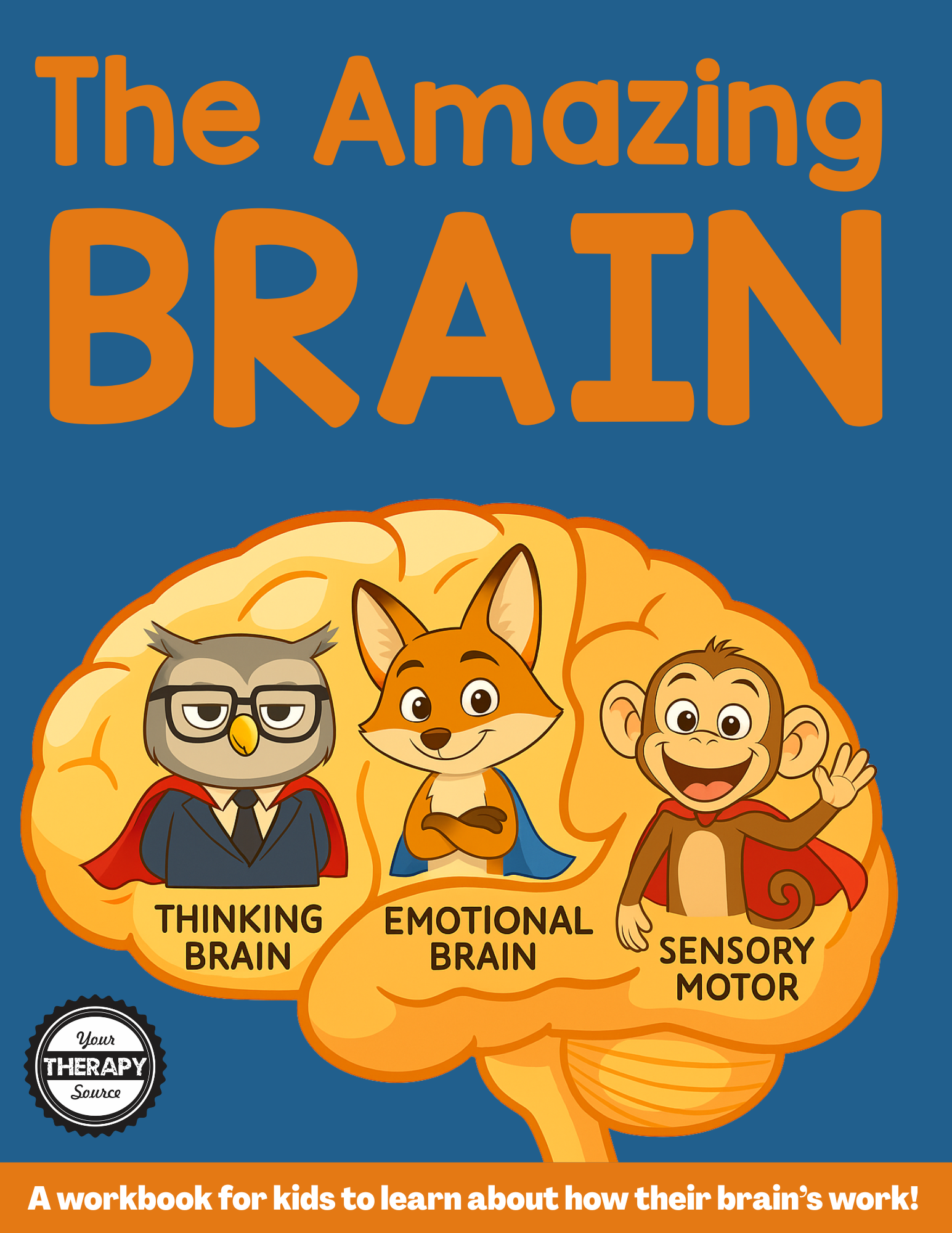
The Amazing Brain Workbook for Kids
Making Self-Regulation Less Mysterious
Self-regulation often feels like an abstract concept to children. When we introduce them to their “brain team,” suddenly these skills become concrete and manageable. Children can understand that their thinking brain needs time to develop and that there are specific strategies they can use to help it work better.
Through our character-based approach, children learn that Ollie the Owl represents their frontal lobe – the part responsible for thinking, planning, and making good decisions. When children understand that Ollie is still growing and getting stronger until age 25, they develop patience with themselves as they practice these important skills.
Understanding Emotions as Brain Functions – Helping Children Understand Their Brain
One of the most powerful benefits of brain education is helping children understand their emotions. When a child learns that Felix the Fox represents their limbic system and is responsible for all feelings, emotions become less scary and overwhelming.
Children discover that every emotion serves a purpose – fear keeps them safe, sadness shows they care about something, and excitement motivates them to engage with the world. This understanding helps reduce the shame often associated with difficult emotions and encourages children to express their feelings in healthy ways.
Demystifying Impulse Control Challenges
Perhaps nowhere is brain education more valuable than in helping children understand impulse control. When children learn that their thinking brain sometimes gets overwhelmed by their emotional brain or their sensory-motor brain, they stop seeing impulsive behavior as being “bad” and start understanding it as a normal part of development.
This knowledge empowers children to develop strategies like counting to three before acting, taking deep breaths when excited, or asking for help when feeling overwhelmed. They understand that building impulse control is like strengthening a muscle – it takes practice and patience.
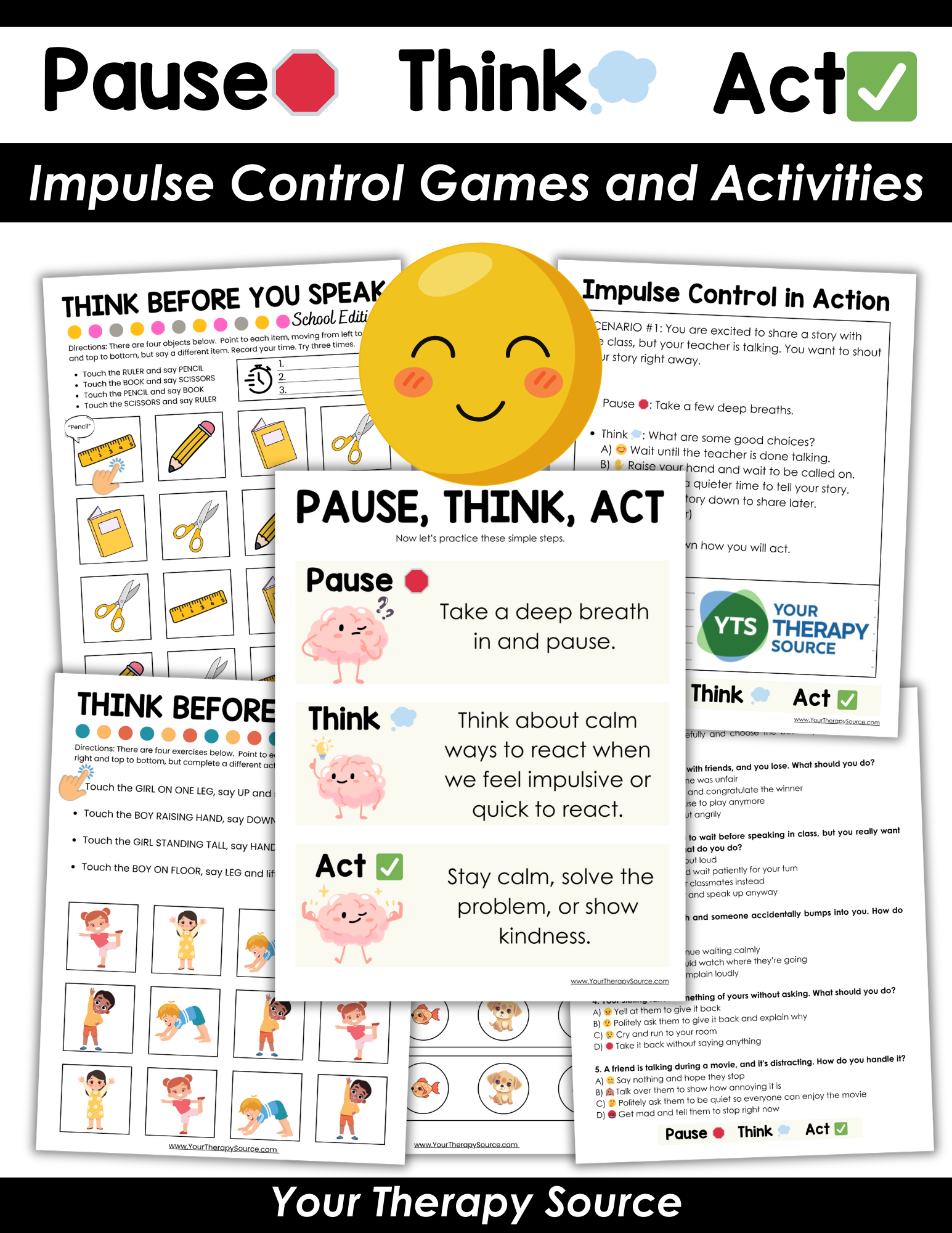
Impulse Control Workbook – Pause, Think, Act
Building Self-Awareness Through Brain Knowledge
Self-awareness is the cornerstone of emotional intelligence and academic success. When children understand how their brain processes information, they become better at recognizing their own patterns and needs.
Through our Brain Team approach, children learn about Mia the Monkey, who represents their sensory-motor systems. This helps them understand why some children need more movement to focus, why certain sounds or textures might be overwhelming, or why their energy levels fluctuate throughout the day.
Creating a Common Language for Growth
When families and classrooms adopt brain-based language, it creates powerful opportunities for connection and growth. Instead of saying “you’re being disruptive,” adults can say “it looks like your Mia needs some movement right now.” This approach feels supportive rather than critical and gives children specific tools for success.
Children learn to advocate for themselves by saying things like “my Ollie needs help making this decision” or “my Felix is feeling really big emotions right now.” This language promotes self-reflection and help-seeking rather than shame or defensiveness.
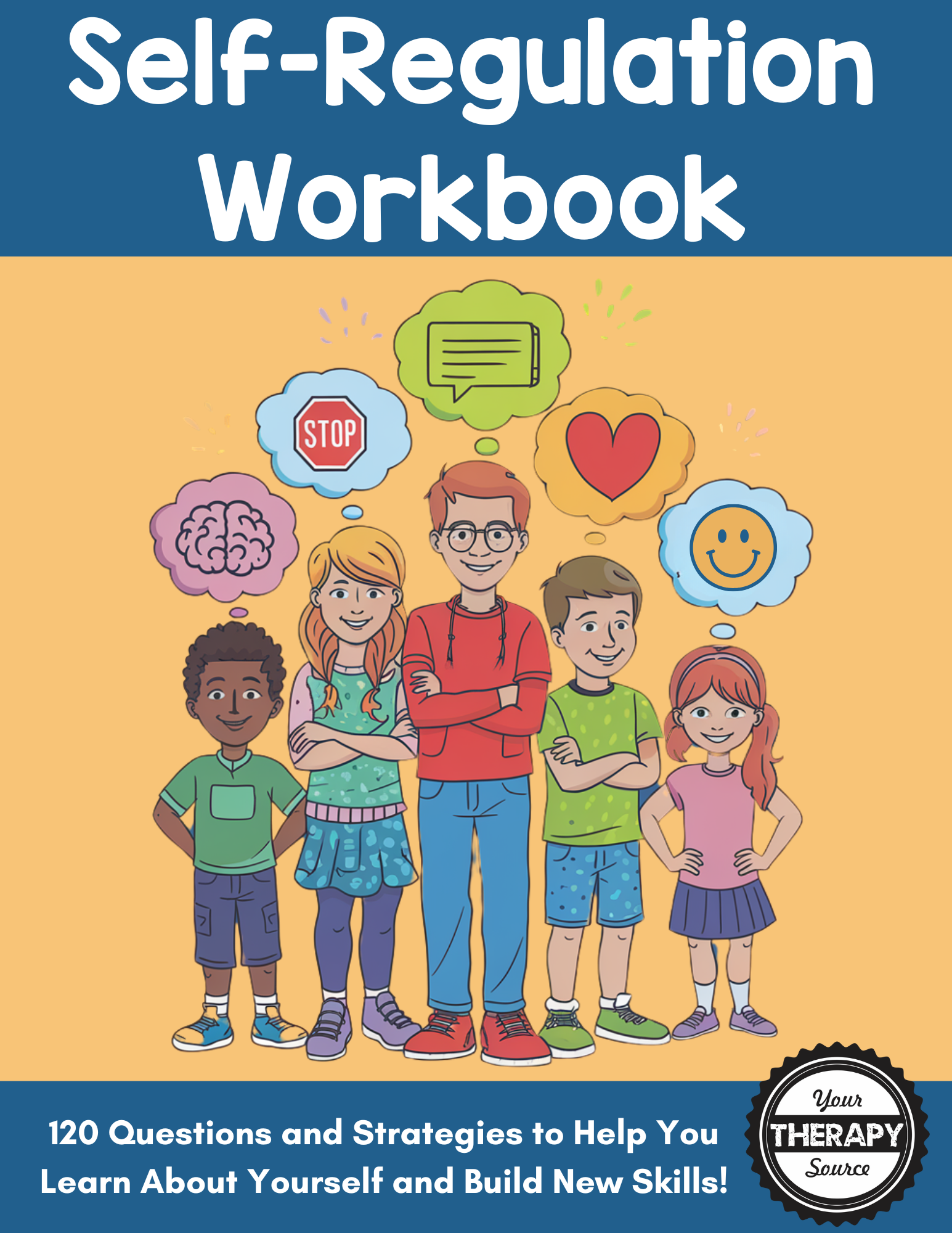
Self Regulation Workbook – Learn About Yourself
Introducing Your Free Brain Team Cards
Our “Let’s Meet Your Brain Team” cards are designed to make these concepts accessible and engaging for children. Each colorful card introduces one of the three brain characters, explains where they live in the brain, describes their key jobs, and provides real-life examples that children can relate to.
The cards include fun facts about brain development that help normalize the challenges children face. For example, learning that the frontal lobe doesn’t finish developing until age 25 helps children understand why adults often seem better at making decisions and controlling impulses.
How to Use the Brain Team Cards
These versatile cards work in multiple settings and situations. Parents can use them during calm moments to introduce the concepts, then reference the characters during challenging situations. Teachers can incorporate them into social-emotional learning curricula or use them to help individual students understand their learning styles.
The cards are particularly effective when children are struggling with specific challenges. A child having trouble with impulsivity might benefit from learning about Ollie the Owl and practicing “thinking brain” strategies. A child overwhelmed by emotions can learn about Felix the Fox and develop tools for emotional regulation.
Building Foundation Skills for Life Success
The ultimate goal of brain education isn’t just to help children understand neuroscience – it’s to give them tools for lifelong success. Children who understand their brain’s functions are better equipped to navigate challenges, build healthy relationships, and pursue their goals with confidence.
These foundational skills in self-awareness, emotional regulation, and impulse control serve children throughout their academic careers and into adulthood. They form the basis for everything from classroom behavior to friendship skills to future workplace success.
Download Your Free Brain Team Cards Here
Ready to introduce your child or students to their amazing brain team? Download our free character cards and begin exploring these concepts together. Remember that learning about the brain is an ongoing process – children will understand and apply these concepts more deeply as they grow and develop.
The most important message to convey is that every brain is unique and wonderful. Some children’s brains need more movement, others need more quiet time, and still others need extra support with emotions or attention. This diversity is something to celebrate, not fix.
Start with curiosity and compassion, and watch as children develop a deeper understanding of themselves and others. The journey of brain discovery is one of the most valuable gifts we can give the children in our lives.
